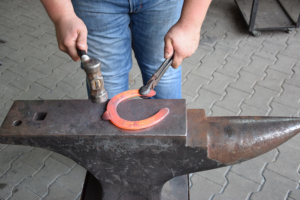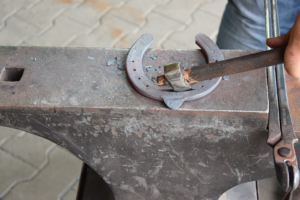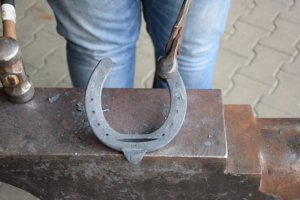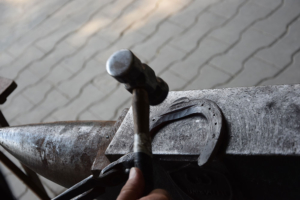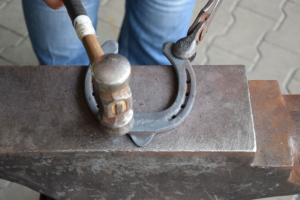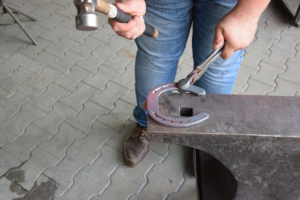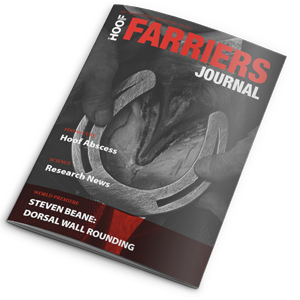
What is the easiest way to widen toes and when do you apply them?
Farrier instructor Christoph Schweppe shows a simple technique to create a wide toe shoe.
Shoe modifications – the toe
Wide Toe
The wide toe is used to prevent the toe from sinking into soft ground and/or in some cases to reduce traction. One indication is pathologies of the suspensory ligament or the superficial flexor tendon.
The theory behind this is to prevent the further dropping of the fetlock that can result from increased toe penetration. When the toe sinks into soft ground hyperflexion of the coffin joint occurs, similar to what happens when wedges are used. This can lead to increased fetlock drop and therefore to more tension on the superficial flexor tendon and suspensory ligament. Increased flexion of the distal joints may also occur when the slide phase at landing is halted very abruptly. For instance, modern “fast” textile surfaces often increase traction and therefore reduce the slide at landing.
Two ways of widening the toe are commonly used on steel shoes: welding and fullering. Welding on additional metal or other parts can let you make a very wide toe. That can be especially helpful at the beginning of a treatment when the horse is still confined to its stall or walked only. Once the horse can resume working at faster gaits the extra weight on the toe may be a disadvantage.
Fullering the ground surface lets you widen the toe without adding extra weight, but this also increases traction, which can be a disadvantage for the reasons mentioned above. The technique shown here combines the benefits of a fullered toe (not adding extra weight) with a smooth toe surface on the ground side of the shoe to prevent ending the sliding too suddenly.
